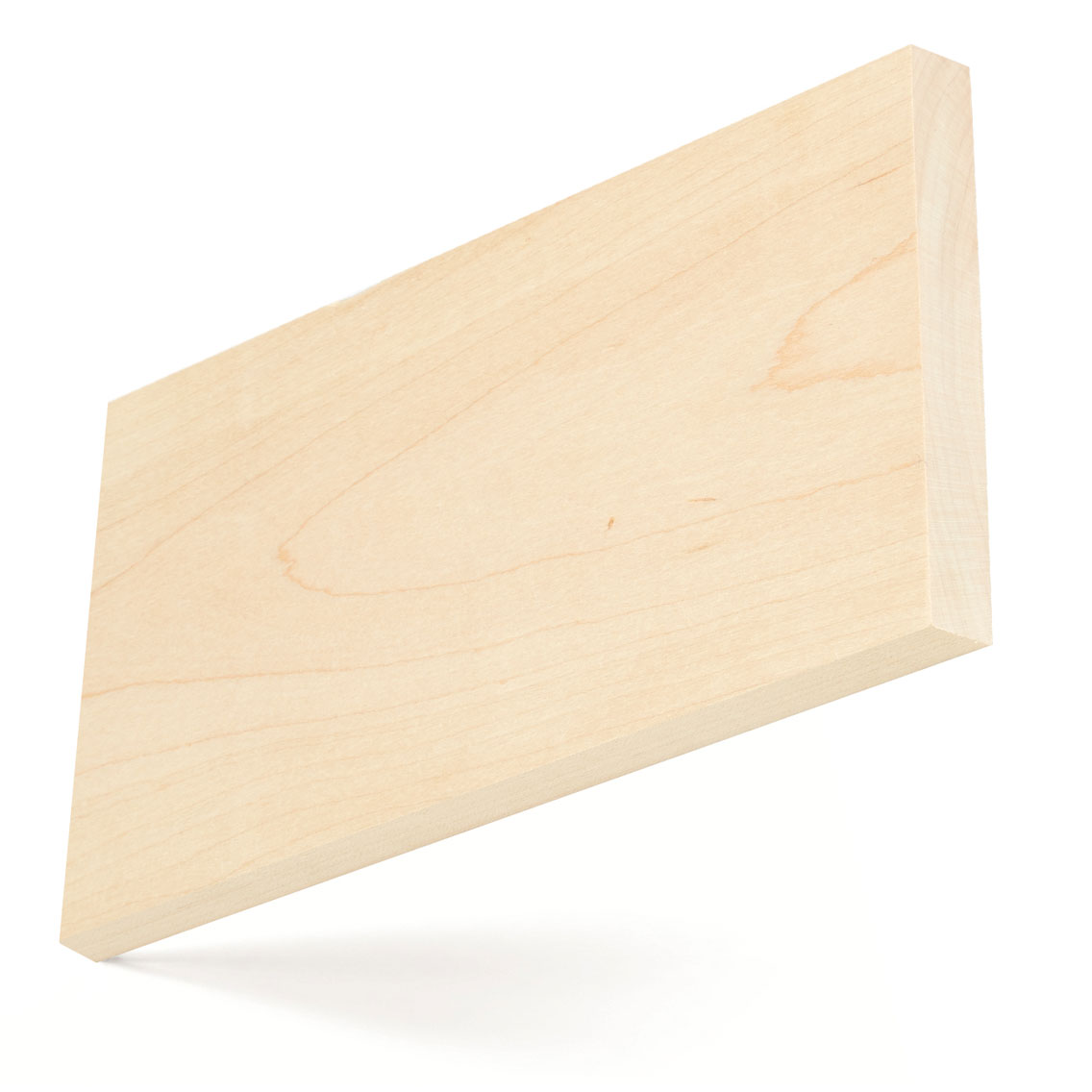American soft maple
Soft maple, growing naturally in the hardwood forests of North America, is one of the most prolific and sustainable species, similar to hard maple but slightly softer in impact hardness.
Latin Name
Acer rubrum, Acer saccharinum
Other Common Names
red maple, silver maple

Forest Distribution
American soft maples grow widely across the eastern USA in mixed hardwood forests with more red maple in the northeast and silver maple concentrated in the mid and southern states. The name can be misleading as soft maple is not technically very soft. There are a significant number of sub-species – all sold as soft maple. Several, including Pacific coast/big leaf maple (Acer macrophyllum), grow in the northwest USA, for which there are specific grading rules that apply.
FOREST GROWTH
FIA data shows U.S. soft maple growing stock is 1.62 billion m3, 11.1% of total U.S. hardwood growing stock. American soft maple is growing 36.4 million m3 per year while the harvest is 16.0 million m3 per year. The net volume (after harvest) is increasing 20.4 million m3 each year. U.S. soft maple growth exceeds harvest in all the main producing states.
LCA Tool
seconds
Material Availability
Soft maple from the USA is widely available as sawn lumber in a range of sizes and grades, but rarely as veneer. The lumber is normally sold unselected for colour. West coast production is usually sold surfaced and graded from the better side, in a departure from standard NHLA Grading Rules.
Wood Description
- Soft maples are somewhat like hard maple, but much more variable in colour, especially from one region to another. The sapwood of soft maple is normally greyish white but can be darker, with pith flecks as a natural characteristic. The heartwood of soft maple varies in colour from light to dark reddish brown. The difference between sap and heartwood is greater than in hard maple.
- The wood of soft maple is generally straight grained with fine texture, with a grain pattern similar to American cherry, soft maple can be stained as a cherry substitute.
Mechanical Properties
Soft maple has good bending and crushing strength, but is low in stiffness and shock resistance. It is about 25% less hard than hard maple. Accordingly it is not recommended for flooring or work tops.
-
Acer Rubrum
0.54
Specific Gravity (12% M.C.)
609 kg/m3
Average Weight (12% M.C.)
10.50%
Average Volume Shrinkage (Green to 6% M.C.)
92.393 MPa
Modulus of Rupture
9,998 MPa
Modulus of Elasticity
45.093 MPa
Compressive strength (parallel to grain)
4,225 N
Hardness
-
Acer Macrophyllum
0.48
Specific Gravity (12% M.C.)
545 kg/m3
Average Weight (12% M.C.)
9.3%
Average Volume Shrinkage (Green to 6% M.C.)
73.777 MPa
Modulus of Rupture
11,308 MPa
Modulus of Elasticity
41.025 MPa
Compressive strength (parallel to grain)
3,780 N
Hardness
Oiled / Un-Oiled Appearance


Performance
- Soft maple lumber is excellent to machine, bore, plane and finish. It turns, glues, planes, drills and carves well but screwing and nailing is only fair. It produces good mouldings. Soft maple can easily be sanded, stained and polished to a fine and smooth finish, and has good steam bending properties. It is regarded as a substitute for cherry when stained. Its mechanical properties and performance also make it a substitute for beech.
- The wood is non-resistant to decay and the heartwood is moderately resistant topreservative treatment. The sapwood is permeable.
Main Uses
This highly sustainable, managed hardwood from natural forests of North America, with excellent environmental credentials, is considered where hardness and hardwearing properties may not be essential. It is used in furniture, cabinet making and joinery as well as doors, kitchen cabinets and for turning and mouldings.